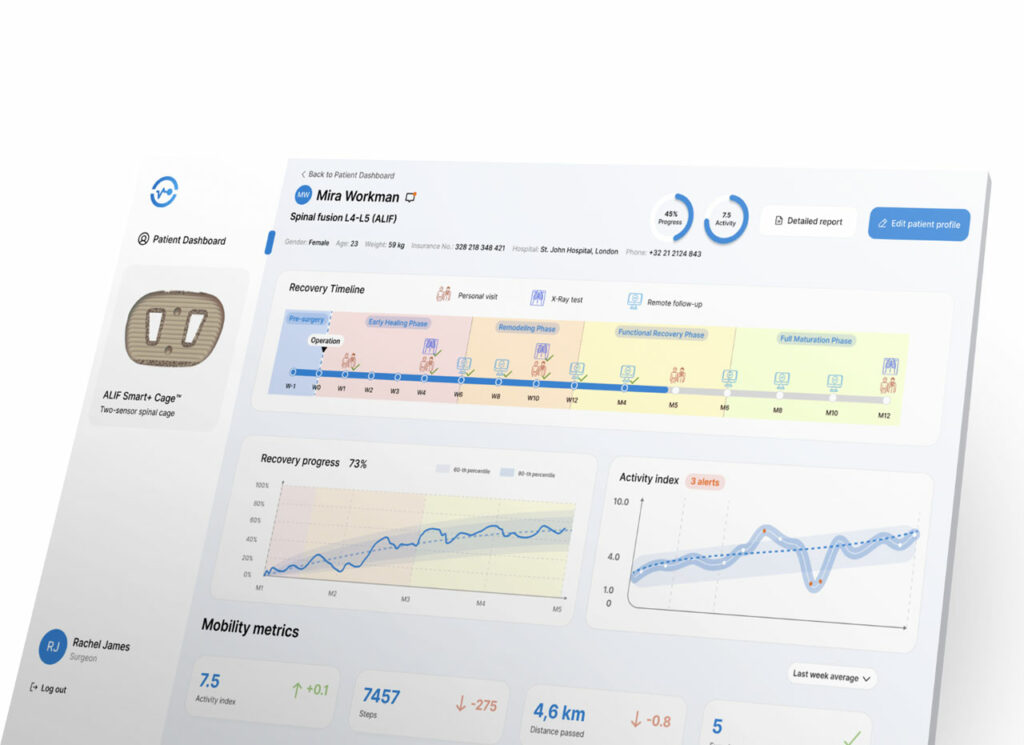Smarter Implants.
Better Outcomes.
Lower recovery costs.
We provide real-time orthopedic data that improves recovery from all orthopedic surgeries. Right now, our technology is built into spine and foot & ankle implants. We help patients recover better and reduce costs for the health system.
Market
Market Context for Smart Orthopedic Implants
The orthopedic market is valued at $56 billion and is growing due to an aging population and digital technology. The remote patient monitoring sector is expected to reach $5.3 billion in 2024, with an 11.4% growth rate. Smart implants help reduce the risk of failed back surgery syndrome, which affects nearly 40% of patients. Recovery between visits can be challenging. In total knee arthroplasty (TKA), the U.S. spends about $5 billion on devices but incurs around $15 billion in extra costs from emergency room visits ($5.5 billion) and imaging services ($3.4 billion). Timely data access can cut unnecessary utilization. By 2026, patient-reported outcomes will be required for hip and knee procedures, and spine treatments by 2028, amid ongoing staffing shortages. Collecting objective, implant-level data enables quick responses and better resource allocation.
Spine
The global spine implant market is projected to reach $16.7 billion by 2030, highlighting the growing demand for innovative solutions.
Foot & Ankle
The market is growing at a 6.9% CAGR, supporting faster recovery.
Knee
Annually, over 1 million knee replacements occur in the U.S., and smart knee technology has reduced unnecessary Emergency Room visits by 40%.

Benefits
Advantages for Providers
Elevate your practice with real-time insights derived from our advanced smart implants. Enhance patient care and optimize recovery processes. Utilize objective signals between visits to aid clinical decision-making, facilitate recovery tracking, and measure essential data points.
Real-Time Monitoring for Enhanced Recovery
Monitor the healing process in real-time using data obtained from the implant.
Personalized Rehabilitation Plans
Incorporate Patient-Reported Outcomes Measures (PROMs) to customize rehabilitation programs and refine care plans accordingly.
Proactive Complication Management
Minimize post-operative visits while facilitating the early detection of complications.
Automatic Data Collection
CMS (Medicare) requires Patient Reported Outcomes through pen-and-paper questionnaires, which require significant effort to collect. We can automate this process, making it easier for hospitals to comply with upcoming insurer regulations.
Benefits for Health System and Payers
Our smart implants provide insurers with critical outcomes data to validate reimbursements. By predicting and preventing costly complications, we enhance patient care while reducing overall costs. Support value-based models that prioritize population health and improve recovery outcomes.
Data to Support Reimbursement Strategies
Validate and optimize reimbursement processes by utilizing real-time data.
Predict and Prevent Costly Complications
Identify complications early to reduce costly interventions and unnecessary ER visits.
Promote Health and Value-Based Care
Enhance your approach to population health with data-driven insights.
Data Insights
Visualize recovery trends and device performance metrics.

Security
Privacy by design
The sensor is battery-free; instead, it is powered by a small wearable device that energizes the sensor only while it is being worn. Data transmission halts when the device is not in use. Additionally, the patient can activate a privacy-switch mode at their convenience, pausing data collection for the desired period.
